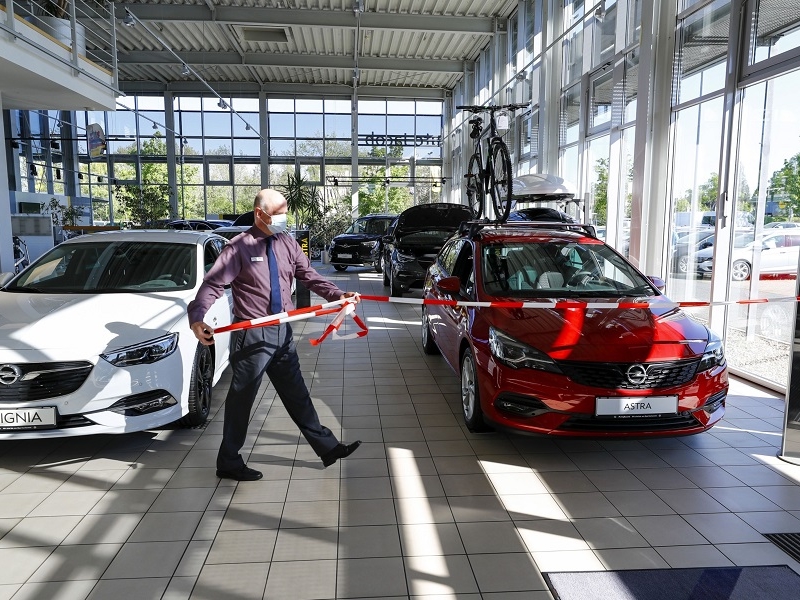
FRANKFURT — Germany’s auto industry and senior politicians are stepping up calls for another scrappage program — known in the U.S. as cash for clunkers — to revive demand after the coronavirus crisis as Volkswagen and Daimler gradually restart output in European factories this week.
Ensuring cars are sold to customers is critical for the production ramp-up, VW brand COO Ralf Brandstatter said Monday in an emailed statement.
“A sales support can be a sensible contribution to climate protection,” he added, suggesting that the program could be geared toward cars with lower emissions.
Germany’s export-driven car sector has been severely hit by shutdowns across the globe to prevent the coronavirus from spreading.
Across Europe, car sales in March dropped 52 percent, the most on record, as showrooms closed to help limit the coronavirus outbreak and production was halted globally.
A scrapping program to trade in older vehicles for new ones helped Germany’s economy to emerge swiftly from the fallout of the financial crisis a decade ago. The federal cash-for-clunkers program in the U.S. also was successful in stimulating sales during the Great Recession.
Manufacturing of vehicles and car parts is the largest industrial sector in Europe’s biggest economy and it safeguards hundreds of thousands of jobs across the region.
Germany reopened its car dealerships on Monday as it starts easing some of its lockdown measures. But Brandstatter argues that this probably won’t be sufficient to bring the industry back into swing.
The auto industry “needs to be at least as strong after the crisis as before the crisis,” BMW CEO Oliver Zipse told Bavarian State Premier Markus Soeder in a speech in on Apr. 8, adding that this is why he supports a bonus for environmentally friendly cars.
The leaders of the German states where VW, Daimler and BMW are headquartered have voiced support to help the industry, but it’s unclear how much traction the calls have gained on a federal level.
“There are currently different demands and proposals from the automobile industry,” a spokeswoman for the Economy Ministry said in a statement. “We follow them closely of course. But there is currently no decision yet,” she added.
Top car industry officials and labor unions are scheduled to discuss ways to overcome the economic crisis on May 5 with the German chancellery in Berlin, according to a government official.
Berlin does not rule out a scrappage program, but there is currently no plan for it, the person added.
German economy minister Peter Altmaier acknowledged in an interview with Handelsblatt that the industry is facing major challenges, but avoided a clear commitment toward additional support. He merely mentioned that existing state aid packages start showing effects.
The European automakers lobby group, ACEA, also called for government help to encourage customers to buy cars.
“It is in Europe’s interest that this key strategic sector not only recovers, but also is revitalized in order to make a strong contribution to the EU’s industrial strategy, the European Green Deal as well as the continent’s global innovation leadership,” ACEA Director-General Eric-Mark Huitema, said last week.
About 13.8 million Europeans work in the auto industry, accounting for 6.1 percent of all jobs in the bloc, according to ACEA.